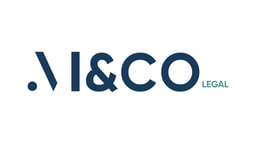News and developments
Navigating Debt Recovery in the UAE: Insights on Leveraging Commercial Licenses as Attachable Assets
Debt Recovery is a critical aspect of financial transactions, crucial for individuals and businesses alike; hence efficient recovery of unpaid debts is vital for maintaining financial security. The recent judgment by the General Assembly of the Dubai Court of Cassation in Cassation No. 1 of 2024 issued on 31 January 2024 (the “General Assembly Judgment”), has expanded the options of attachable assets in relation to debt recovery. Before discussing the nuances of this judgment, let us look into the framework of debt recovery in the UAE.
Legal Framework of Debt Recovery in the UAE
Debt recovery in the UAE is governed by a set of laws, rules and regulations. However, the primary laws addressing debt recovery are the UAE Civil Transactions Law (Federal Law No. 5 of 1985) and the UAE Commercial Transactions Law (Federal Law No. 50 of 2022). Additionally, other laws dealing with debt recovery and restructuring include Federal Decree-Law No. (51) of 2023 promulgating the new Financial and Bankruptcy Law.
Key Laws Governing Debt Recovery in the UAE:
Implications of the General Assembly Judgment:
The General Assembly Judgment, in alignment with the UAE Civil Transactions Law and Federal Decree-Law No. (42) of 2022 promulgating the Civil Procedure Code (“CPC”), emphasizes that all of a debtor's property serves as security for their obligations, unless exempted under Article 242 of CPC or another special law.
This landmark ruling establishes that a company's commercial license and intangible assets contribute significantly to its overall value and can be materially assessed, and therefore can be the object of a lien, unless they are non-transactional by nature or by operation of law.
This is a significant departure from the previous legal interpretation set by Cassation No. 122 of 2018 (Real Estate), which viewed commercial licenses as non-transferable personal authorizations without inherent value beyond the individual holder, rendering them ineligible as security.
This shift is advantageous for creditors, as the ability to attach a company's commercial license and intangible assets adds substantial pressure on debtors to settle their debts. Overall, this judgment enhances the insolvency legal framework of the UAE, providing a more robust and creditor-friendly environment.
In conclusion, the strategic use of commercial licenses as attachable assets in debt recovery can be a potent tool for creditors. However, it is essential for individuals and businesses to grasp the legal framework and ramifications of such actions when navigating the debt recovery process in the UAE.
